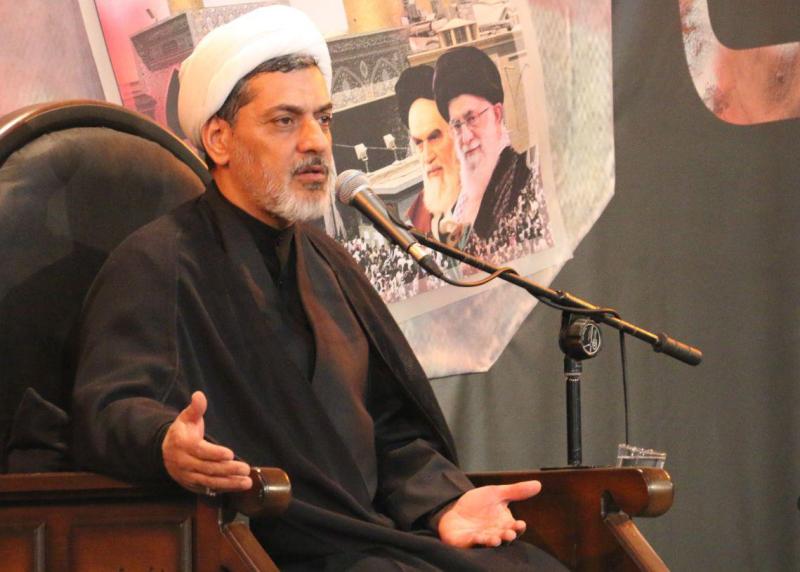
RNA – Speaking at a mourning ceremony at al-Mustafa International University’s Imam Khomeyni Specialized University campus, Hujjat al-Islam Dr. Naser Rafiei-Mohammadi stated, “One of the greatest factors in dignity is social monitoring or (as it’s known in Islamic teachings) ‘enjoining the good and forbidding the wrong.’”
The member of the faculty of al-Mustafa International University said, “Imam Ali has said that in comparison to all the obligatory duties, ‘enjoining the good and forbidding the wrong’ is like moisture on one finger in comparison to all the water in the oceans because good acts refers to the obligatory acts and the wrong acts refer to the forbidden acts and ‘enjoining the good and forbidding the wrong’ is the umbrella of all obligations and forbidden acts.”
He stated, “In enjoining the good and forbidding the wrong, the principle is recognized and the method is unknown. Those acting in regards to their duties are the successors to God, the Prophet Muhammad and the Quran.”
Hujjat al-Islam Rafiei-Mohammadi said that God dislikes a weak believer and added, “It was asked from one of the Infallible Imams, ‘who is the poor believer?’ The Imam said that the weak believer is the one who doesn’t enjoin the good and forbid the wrong.”
The importance of enjoining the good and forbidding the wrong
The national media expert referred to the importance of enjoining the good and forbidding the wrong, saying, “The people of the Prophet Shu’ayb were a large group and this prophet advised them due to their fraud in commerce but they didn’t accept his advice and teachings and the Prophet cursed the wrongdoers and God punished all of the people. The Prophet asked the reason for this and God said that the believers were also silent in regards to the sinful acts by the guilty ones.”
He said that those who are satisfied with the forbidden actions of others are partners are guilty of committing sins and said, “Silence in the face of sin, the stimulation of sin and satisfaction in sin will be punished together.”
Types of vices
Hujjat al-Islam Rafiei-Mohammadi spoke of various types of vices and stated, “Shirk or ascribing partners to God is a theological vice. Another branch of vice is social vices – which includes dishonesty, taking the rights of others and treason in the safekeeping of other’s belongings.”
He added, “Economic vices, which includes usury, bribery and the distribution of counterfeit goods, is another type of vice. Political vice is yet another form of vice and in this form of vice, the treasury of a country is neglected and embezzlement is committed.”
The renowned lecturer added that other types of vices include moral vices; cultural vices, which includes the propagation of vulgar clips and the spread of bad hijab; military vices which includes treason in war; and family vices, which includes nastiness and not giving a dowry.
“Some of the vices necessitate universal determination,” he added.
Hujjat al-Islam Rafiei-Mohammadi emphasized the observance of the principles and rules of enjoining the good and forbidding the wrong, and noted, “When performing his obligation, we must be careful not dishonour the people and to protect their dignity.”
112/930/522